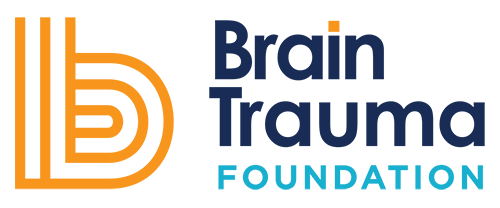ATHLETE SPOTLIGHT: Harley Rose Taich
As part of an ongoing series looking into the experiences of professional athletes who have sustained concussions, Brain Trauma Foundation sat down with Harley Taich, a 20 year old professional surfer. Born and raised in La Jolla, California, everything Harley does revolves around surfing. The sport has brought her some of the greatest joy in her life, but also some of the biggest pain and heartbreak following a devastating concussion that kept her away from surfing and left her in a depression. Since recovering from her TBI, Harley has spent a lot of timing spreading awareness, even publishing a children's book, Heads Up! The Story of Finn and Reef, which helps children better understand concussion.
Note: Brain Trauma Foundation does not endorse any opinions or medical claims from a Spotlight Athlete. BTF was not involved in Harley's medical care.
READ HARLEY'S STORY, IN HER OWN WORDS:
How did you get into surfing? What do you love most about it?
Ever since I was a little girl I wanted to be a professional surfer. At 12 years of age, I enrolled in a Charter School with independent study so I could surf when the waves were good.
I spent most of my childhood living with my father. He was an ocean lover and hardcore surfer so he always had me at the beach. At about four years old my dad bought me my first wetsuit and hot pink surfboard. I realized I didn't want to watch my dad surf – I wanted to get out there and join him.
There is something so magical and therapeutic about being in the ocean, and surfing is like a magic carpet ride. It’s always new and exciting and I always have the biggest smile on my face when I'm in the ocean.
Did you think much about safety?
The main safety issues I was concerned with were getting hit by my board or being cut by my fins. I was always cautious of other people's boards as well and knew to avoid being hit by them.
Did you know anything about concussion?
I had heard of concussions, but never thought about getting one while surfing, nor had any idea the extent a concussion could go to. Looking back, I actually had a concussion a few years prior – I was sleepwalking and passed out on the floor in my house, had a headache for about a week, and didn't attend school for several days.
What happened when you suffered your major concussion?
It was difficult to understand what was happening. Doctors were unsure of the diagnosis and the prognosis was unclear. I received mixed opinions and a variety of treatments.
What were you conversations with doctors like?
My first question whenever I would see a new doctor was always, “when can I surf?” I just wanted to know when it was safe to get back in the ocean.
In the last few years I have seen about eight different neurologists. The most frustrating part of the experience was all the different opinions I received. One doctor told me to rest for a year: no surfing, no school, nothing but rest. Another doctor told me to surf and return to normal activities.
Because I was so confused, I ended up self-treating and deciding myself when to start surfing again, which didn't work out very well.
How did your concussion effect you and your relationships?
I was blessed to have amazing family support, but at times it was hard. The hardest part was not being able to relate to anyone. I wished at times that I had that one person to talk to who understood what I was going through and who understood how I was feeling. Friends were unsure of how to respond to me. Some were supportive but after time they faded and lost sympathy.
My emotional state deteriorated daily. My life as a surfer had defined me. Surfing was all I knew. I checked the surf daily and not to be in the water killed me. I couldn't exercise, go to school, read nor have any electronic stimulation. Life went on without me. My health deteriorated including cystic acne, hair loss, and depression on top of displaying concussion symptoms, like nausea, migraines, dizziness, confusion, memory loss, and emotional outbursts. Not knowing if or when I would improve would worsen my symptoms.
How did recovery finally happen?
After four years of trial and error, I decided to stay out of the ocean for a whole year and not surf. I dropped out of my third semester of community college, was unemployed and basically for one year straight I just rested my brain and body. I listened to my body and because I let myself heal that year, I am now almost 100 percent recovered!
I learned patience and acceptance during that time, and as hard as that year was it was so worth it. I wouldn't be where I am today if I did not let my brain and body heal.
Interested to learn more about Harley and her experience? Reach out to Harley at http://www.itsharleyrose.com/about.html.



